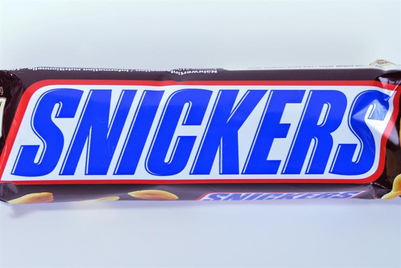
The news that Bruce McColl, 53, is retiring from his role as chief marketing officer at Mars after 24 years with the company brings to an end one of the most celebrated runs of any marketing chief in recent memory. At a time when the average CMO tenure is down to just 44 months, McColl held his job a full decade, building a global marketing function built on twin pillars of science and creative freedom that produced consistently award-winning work.
In 2012—one year after consolidating Mars’ global business with Omnicom Group’s DDB (Skittles, Starburst, Juicy Fruit, Milky Way, Three Musketeers) and BBDO Worldwide (Snickers, Pedigree, Twix, M&Ms, Extra, Five, Orbit) and MediaCom—Mars was named Creative Marketer of the Year in Cannes. With BBDO alone, Mars has won 69 Lions and 41 Effies over the past decade, and with DDB it has won 11 Lions since 2012. In 2015, the company was named Client of the Year at the One Show. And while Mars doesn’t release sales figures, its long-term commitment to the award-winning campaigns suggests it’s pleased with the results.
Perhaps more impressive, McColl seems to be genuinely liked by his peers. "He is one of the most humble, down-to-earth, non-ego, non-diva people," said Leonid Sudakov, CMO of Mars Global Petcare. "And for somebody who is the CMO of a business of this size for so long, and was so successful, it was so great to see someone who is so humble and approachable."
"If the question is, would you like to be seated next to the man on a long flight, the answer is yes," said Andrew Robertson, president and chief executive of BBDO.
Through interviews with McColl and those who worked closest with him, here are seven lessons marketers can take from his success at Mars
Forge long-term agency relationships built on trust. McColl made a splash at the Australian Association of National Advertisers last November when he criticized other brands for keeping their agencies in "creative prison" and expecting them to work under constant threat of losing the business. In an interview with Campaign US, McColl expanded on why he believed AOR relationships were key to building brands.
"If you have very strong long-term relationships with your agencies, you can evolve and adjust to bring in new skills and new ways of working," he said. "But you need to base it on something, and for me a mutual relationship is the only way to go forward."
"I see too much of [other brands] turning their agencies into prisoners, or of the threats," he continued. "Asking our agency partners to work under those conditions and be better doesn't make sense for me. At Mars, we're not perfect either. I've tried to get that across. We don't get it right all the time. We're still learning."
Give your agencies the freedom to create their best work. "The rule of Mars is we don’t have rules," said Juan Carlos Ortiz, Creative Chairman of DDB Americas and CEO of DDB Latina. "Bruce truly believes that great advertising is not the one that’s checking list after list. It’s the one that entertains you or moves you."
"The work either moves him or it doesn’t," Ortiz continued. "It sounds easy, but always to get to that kind of power and simplicity is very difficult."
McColl himself has pointed to Wrigley’s "Story of Sarah and Juan" from 2015, created by BBDO Chicago, as an example of the kind of emotional advertising that comes from giving agencies creative freedom. The spot was the result of what McColl calls a "freedom brief," one that gives agencies wide latitude to solve business challenges through creative executions.
"He has this thing— make me laugh or make me cry," said Robertson. "Because he knows that work that does that will move the needle and drive the business."
Make fewer, better ads that run for longer periods, and avoid unnecessary package redesigns that confuse consumers. McColl is a long-time adherent to evidence-based marketing, a philosophy based on constant testing, trend analysis and research. Some of the core principles of the approach are that consumers do not react well to clutter, whether in the media or in the candy aisle. This was an important—but tough—lesson for a brand like Mars.
Professor Byron Sharp of the Ehrenberg-Bass Institute in South Australia, where Mars has long had its own lab dedicated to marketing research, considers McColl one of his star pupils. Asked how McColl has brought the institute’s principles to bear at Mars, Sharp said he’d rather talk about what Mars no longer does thanks to McColl.
"I’d rather mention Mars’ exemplary progress in stopping doing some things that are either damaging, dangerous or a distraction from important things," he wrote in an email. Among those were "making fewer ads, airing fewer but better ads for longer," creating "fewer websites, fewer pack changes" and "less ad pre-testing."
"Without dropping bad practices, you can’t free up time and money to spend on the things you need to be doing," said Sharp.
Wrigley CMO Orla Mitchell, in an interview with Campaign US in March, talked about how those lessons opened her eyes to what her brand had been doing wrong.
"We'd become very "spray and pray"—throw a flavor out there and see where it goes," she said. "But that really cluttered the category and was eating up valuable space at point of purchase. We took our attention away from the core flavors and the core execution that people love and remembered. So people stopped noticing us, and they forgot about gum."
Rule by "provocation and support" McColl is known for having high expectations of others but never pushing people to do things his way. Instead, he educates coworkers and agency partners about his way of doing things and waits for them to get on board.
"He basically opened our eyes to what the science is, the fundamentals of what is happening and the understanding of consumer behavior in marketing science, but then he let us go through our own journey of defining what it means," said Sudakov. "There was never a mandate with him. It was provocation and support as you go through the journey and decide if this is for you. He’s great at provocation and then helping you get to your own conclusion."
Do your own research, and forge adventurous partnerships to get it. Peers say McColl loves to get his hands dirty in research and has demonstrated a willingness to partner with whatever institution can get him the insights he needs.
"He doesn’t just have opinions, he really does the work," said Robertson. "He does the research, he separates from the research the stuff that matters and stuff that doesn’t. He forms interesting partnerships to get the information he wants. He’s worked with MIT on new models to study how consumers respond to certain types of storytelling and quantify the impact of advertising. He’s got that curiosity."
Minimize hierarchy. For a multi-billion dollar, global organization, Mars maintains a remarkably flat and decentralized marketing structure. Beneath McColl, each brand has its own CMO, plus regional directors who are largely empowered to make their own local decisions. But McColl’s colleagues and agency partners talk frequently about the free exchange of ideas between the top and lower rungs of the business.
"He loves to avoid layers, and that is something that is so important in our business," said Ortiz. "He truly believes that all the process, going from the bottom to the top—no—he is a person who makes the final decision and boom. And that’s so important in this world, because sometimes we are more blocked by the process than the ideas."
"He is not really into hierarchies," said Robertson. "He spends his time with the people who can help him build his brand and business. He’s very, very tough. Either you’re 100% in or you don’t exist."
That approach dovetails nicely with his personality, which is noticeably absent of ego, said Robertson.
"He’s one of these people who has a ridiculously underdeveloped ego," he said. "He is as generous and kind when dealing with a young account executive as when dealing with the president of Mars. He just is one of those people who gets on with everybody. He never lets his ego get in the way of anything."
Give your agencies clear, direct briefs that lay bare your business challenges. "For me, powerful creativity is like dancing the tango," McColl said. "That means the client needs to be very, very clear about what the business challenge is. This will go back into the briefing process, etc. We still have briefs that aren't working well because we're unclear about what we're trying to achieve. The agency needs to understand what our business challenges are. The best success comes when agencies are coming to us with ideas and solutions that they're thinking about on the basis of our business challenges. That's, to me, nirvana."





.jpg&h=268&w=401&q=100&v=20250320&c=1)


.jpg&h=268&w=401&q=100&v=20250320&c=1)
.jpg&h=268&w=401&q=100&v=20250320&c=1)